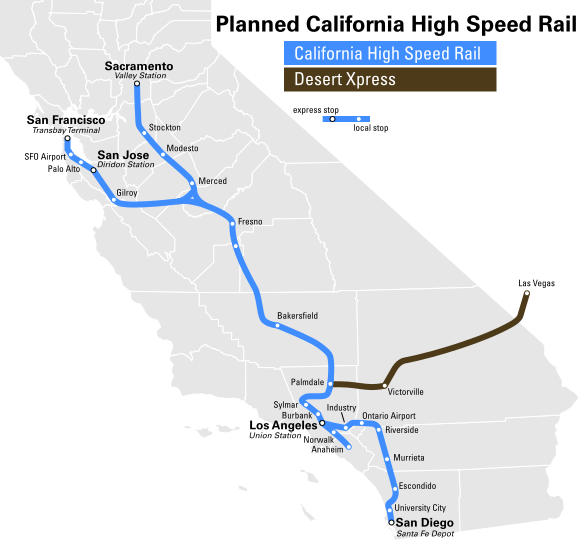
California's high speed rail will start with a spur between Bakersfield and Fresno. The spur has earned some giggles from conservatives, considering how relatively small those two cities are. But this is the start of a high speed rail line that will eventually extend from San Francisco to San Diego. Federal money from the stimulus bill passed in 2010 has jump-started the project, with additional monies from Wisconsin and Ohio (the Republican governors of those states did not accept the Federal grants).

The construction will create 150,000 jobs in California, and some estimates have projected nearly 650,000 permanent jobs will be created along the rail corridor. The project will help reduce overtaxed roads in California, and will remove more than one million vehicles from the state's roads and freeways; and it will also lessen California's dependence on foreign oil by up to 12.7 million barrels per year. Estimates vary from 22 million to up to 96 million riders per year). The final cost of the entire project varies by source, but some estimates have been as high as 81 billion dollars. It's estimated as spurs are completed, profits from those lines would help finance construction costs, making it somewhat cost effective. I think the entire project is a great one, and sure it's going to be very expensive, but then-- most big projects are. The United States has been falling significantly behind on infrastructure investments for some time, we need to do something about it!
(no subject)
Date: 25/3/11 00:28 (UTC)http://beaconecon.com/Misc/RIR_UCRiverside_E1.pdf (page 4)
(no subject)
Date: 26/3/11 00:30 (UTC)(no subject)
Date: 26/3/11 04:42 (UTC)